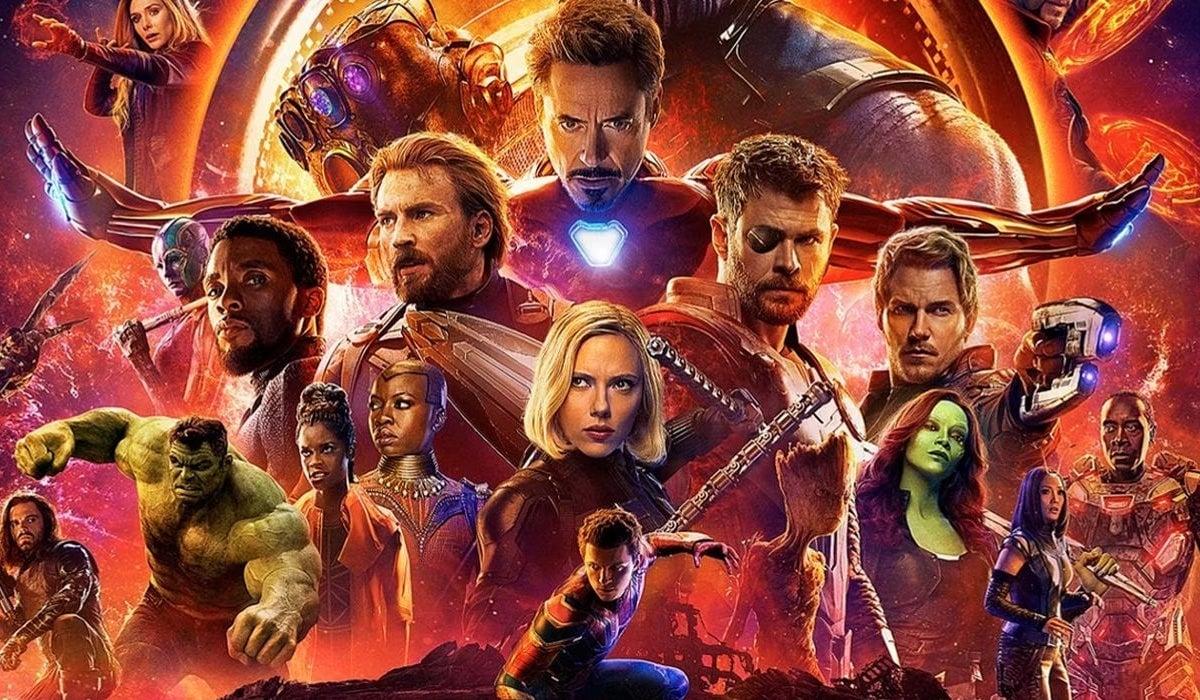If you click on a link and make a purchase we may receive a small commission. Read our editorial policy.
Which is more important to fans: Marvel, or the people behind the brand?
Is Quentin Tarantino right when he thinks that the "Marvel-ization" of movies has devalued the movie star?

Why do audiences get excited about Marvel movies? Is it the writing, the directing, the work of the actors — or is it the excitement of getting to be part of the latest chapter in the ongoing saga of the Marvel Cinematic Universe? Iconic movie writer/director Quentin Tarantino has an idea about this… and, as controversial as it might seem, it’s one that might be borne out by the facts.
“Part of the Marvel-ization of Hollywood is…you have all these actors who have become famous playing these characters,” Tarantino said during a recent appearance on the 2 Bears, 1 Cave podcast (as reported by Variety). “But they’re not movie stars. Right? Captain America is the star. Or Thor is the star. I mean, I’m not the first person to say that. I think that’s been said a zillion times…but it’s like, you know, it’s these franchise characters that become a star.”
The Star of the show
As he notes, Tarantino is far from the first person to note Marvel’s effect on the movie industry, although such commentary — including Martin Scorcese’s likening of Marvel movies to amusement park rides or Francis Ford Coppola describing them as “one prototype movie that is made over and over and over and over and over again to look different” — is often met with something approaching hysteria.
What Tarantino is doing is slightly different than arguing that superhero movies are a different kind of movie, or are somehow lesser than other movies, though; instead, he’s suggesting that Marvel has changed the way that audiences interact with movies in such a way that de-emphasizes individual contribution, and places more focus on the brand than anything else. He's not even the first person to do this, however; no less an authority than Anthony Mackie, the MCU's own Captain America and the Falcon, said the same thing during an appearance at MCM London in 2018, with a video clip of him doing so now being widely shared on social media.
"Anthony Mackie isn’t a movie star. The Falcon is a movie star. And that’s what’s weird," Mackie said at the time. "It used to be with Tom Cruise and Will Smith and Stallone and Schwarzenegger, when you went to the movies, you went to see the Stallone movie. You went to see the Schwarzenegger movie. Now you go see X-Men."
Beyond the universe

Looking at the evidence, it’s hard to argue that either Tarantino or Mackie are actually wrong. Whereas blockbuster franchises used to transform its actors into stars who’d go on to anchor other hit movies — hi, Harrison Ford, the poster child for this phenomenon — the Marvel movies instead create… the hunger for other Marvel movies, it seems. It’s undeniable that appearing in a Marvel movie raises the profile of any actor, but outside of a small handful of outliers like Chris Pratt or Scarlett Johansson, the Marvel buzz has notably failed to translate into success outside of the MCU.
Look at Chris Evans’ non-MCU career: In the last few years, he’s starred in Lightyear, The Red Sea Diving Resort, and Gifted — none of which were really in any danger of troubling box office charts, if we’re being honest. This is the man who played a lead role in almost all of the biggest Marvel movies to date, and proved to be the emotional anchor through which fans followed Avengers: Infinity War and Avengers: Endgame… and, once he steps away from Captain America, it looks as if very few want to follow him. (To be fair, he also appeared in Knives Out, which was enough of a hit that it seemingly surprised everyone, even those responsible.)
He’s not alone; the same could be said of Chris Hemsworth (Who here remembers Bad Times at the El Royale, 12 Strong, or his two doomed attempt at franchise reboots, Men in Black International and 2016’s Ghostbusters), Tom Holland (Uncharted, Chaos Walking, Cherry, or Onward), or even Robert Downey Jr. (who found early success post-Iron Man with Guy Ritchie's two Sherlock Holmes films but hasn't managed the same with other projects like The Judge, Doolittle, or The Soloist); it’s genuinely easier to think of the few Marvel actors who have managed to translate their Marvel success into something larger — Pratt, Johansson, arguably Dave Bautista — than the opposite.

There's an argument to be made that box office isn't a useful metric to measure the success or failure of some of these movies, given the scale of some of their budgets, and the fact that a number of the projects mentioned in the past two paragraphs either debuted on streaming services or quickly migrated to them as a result of the COVID-19 pandemic. It's a useful thing to bear in mind, but also worth remembering that, even outside of how much money each project made or didn't make, their cultural footprint was also surprisingly underwhelming. As much of a social media fandom as these actors have, it isn't something that guarantees success when taken outside of a superhero movie context.
The same could be argued for Marvel filmmakers, too. The Russo brothers are, thanks to Marvel, responsible for some of the biggest movies in U.S. box office history — but both of their following two movies, Cherry and The Gray Man, barely made a splash when they were released in the past couple of years. Scott Derrickson’s Doctor Strange was followed by the far superior Black Phone, but because the latter isn’t a superhero movie, it flew under most people’s radars.
For all the overwhelming success of the Marvel Cinematic Universe, and the box office dominance of the Marvel brand, it’s genuinely surprising that so little of it has translated outside of the MCU, and suggest that Tarantino is, in fact, entirely correct in his reading that the true stars of any Marvel project are the fictional characters the company has been working for decades to bring to life convincingly… and, ultimately, Marvel itself. The only question is, really: Is that actually a problem?
Despite his comments about Marvel, Tarantino isn’t averse to franchises; he was at one point attached to a Star Trek movie — one that has now been taken off the release slate entirely.
Follow Popverse for upcoming event coverage and news
Find out how we conduct our review by reading our review policy
Let Popverse be your tour guide through the wilderness of pop culture
Sign in and let us help you find your new favorite thing.
















Comments
Want to join the discussion? Please activate your account first.
Visit Reedpop ID if you need to resend the confirmation email.